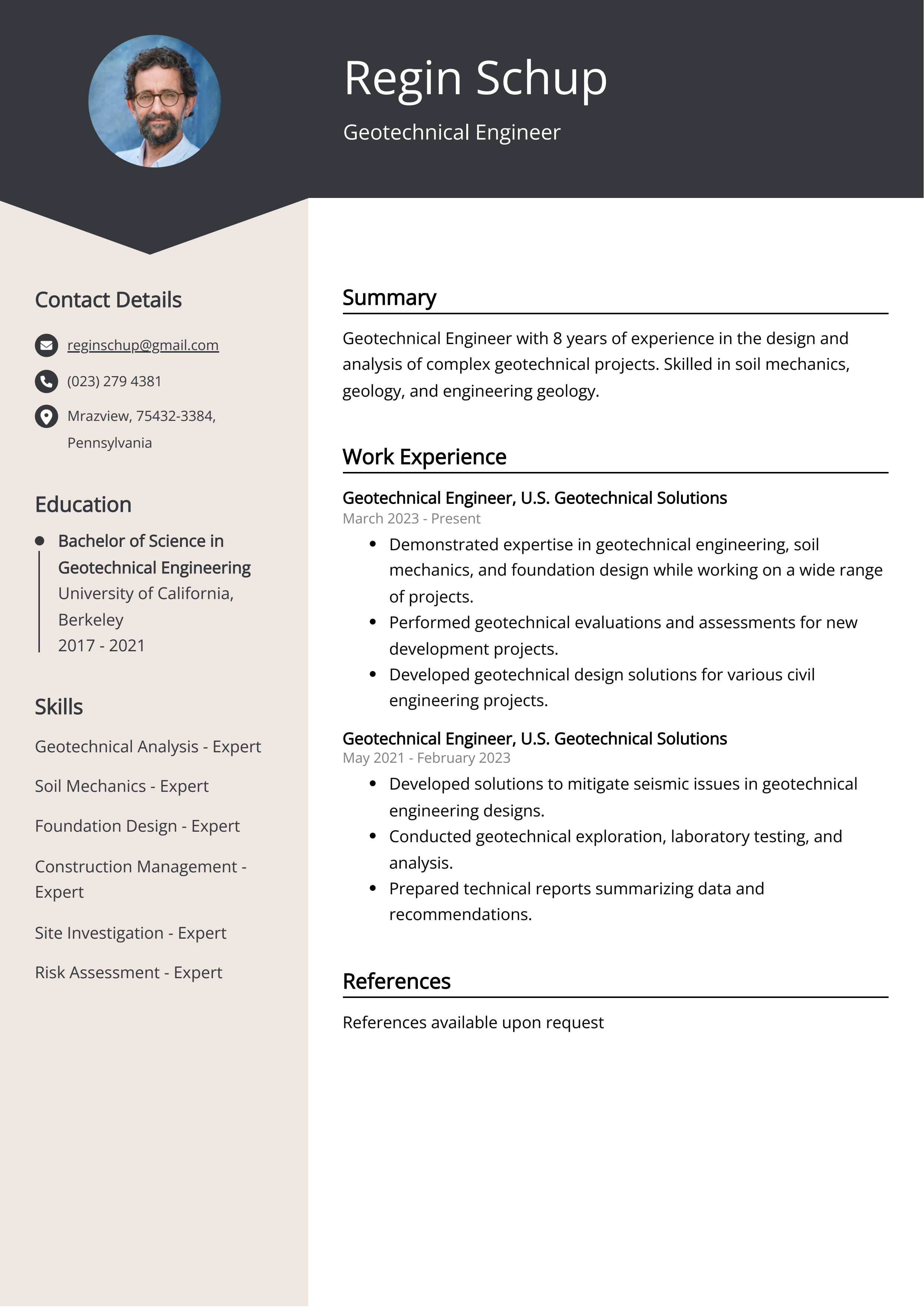Geotheta Fundamentals Explained
Geotheta Fundamentals Explained
Blog Article
How Geotheta can Save You Time, Stress, and Money.
Table of ContentsSome Known Questions About Geotheta.How Geotheta can Save You Time, Stress, and Money.The Geotheta PDFsGetting My Geotheta To Work
They work together with civil designers, structural engineers, architects, and other professionals to incorporate geotechnical considerations right into the general project design and construction process. This calls for reliable synergy, sychronisation, and communication to guarantee that the geotechnical aspects align with the project goals and fulfill regulatory needs.Mining & Materials Design: Principles of drilling, infiltration rates, and elements affecting the selection of exploration method. Characteristics of nitroglycerins, shooting systems and blast patterns. Blasting strategies in surface and underground operations. Unique blowing up techniques at excavation borders. Vibration and sound control. Mechanical and constant approaches to fragmentation, consisting of longwall shearing and fullface boring.
Modelling of fragment and bit size circulations; comminution as a transfer function. Comminution modern technology: crushing, grinding, size category. Integrated analysis of fragmentation and comminution procedures. Offered by: Mining & Products Design.
Rumored Buzz on Geotheta
Bachelor's level programs in civil, geotechnical, geological, and environmental engineering commonly last four years and include general education and learning programs in English, social scientific research, and the liberal arts, as well as courses in advanced mathematics, structural geology, and liquid mineralogy. (https://www.provenexpert.com/geotheta/)
Geotechnical design includes the assessment of the soil and rock problems at a specific site, and their effects for the advancement of that site. As the majority of structures count on the ground for support, it is without surprise that a detailed understanding of the ground conditions, and the suitability of structure systems, are vital to the long-lasting stability and efficiency of the structure or framework.
Specialising in the investigation of geological formations and ground behaviour, geotechnical engineers carry out scientific examinations and screening to recognize the impact these geological formations may have on the style and construction of building, civil and facilities jobs. This know-how is crucial for the design and construction of buildings, roads, tunnels, dams, bridges, and water and sewer system.
The geotechnical group at Douglas Allies consistently talk to designers, style designers, programmers, and builders to make recommendations on design and development proposals to ensure that the constructed frameworks are appropriately designed for the ground conditions. The style of footing systems requires to consider the weight of the framework, the capacity of the ground to support that weight together with movement tolerances and reliable building.
How Geotheta can Save You Time, Stress, and Money.
This task is greatly streamlined by the use our Douglas Map geospatial platform that makes this information conveniently obtainable in a very easy to make use of internet browser user interface. A geotechnical engineer will route the exploration of boreholes and test pits to accumulate dirt and various other examples, and also assess surface features and ground direct exposures to develop a geotechnical model of the subsurface conditions.
Depending upon the task kind and ground problems encountered, lab screening may amongst various other things examine strength, compressibility, reactivity and/or leaks in the structure of soil and rock examples. After this information is gathered and collected, the outcomes are made use of for a geotechnical design of the website, which is generally provided as areas throughout the site.

A geotechnical investigation by nature can only assess the ground conditions at the areas drilled or dug deep into. Natural variations in soil try here and rock conditions can take place across a website and between examination places. It is consequently great technique that the geotechnical engineer be maintained throughout construction of the job to provide on-site verification that the ground problems encountered are regular with the expectations and advice provided in the geotechnical investigation record.
The Facts About Geotheta Uncovered
Geotechnical designers utilize their in-depth understanding of soil and rock to examine risk and address troubles on varied framework projectsGeotechnical engineering is a specialist branch of civil design which checks out the practices of planet materials and the application of soil and rock mechanics. Geotechnical Engineers. As a geotechnical engineer, you will certainly assess the physical, mechanical and chemical residential or commercial properties of dirt and rock in order to design foundations, retaining frameworks and earthworks
Geotechnical design is closely connected to and overlaps with, both design geology and ground engineering - https://geotheta.godaddysites.com/f/why-geotechnical-engineers-are-your-projects-best-friends. It's possible to specialise in geotechnics or benefit a geotechnical company however be recognized as a design geologist or a ground designer. As a geotechnical engineer, you'll need to: build and keep connections with customers and various other specialists included in the site, throughout each projectmaintain safety requirements on site be conscious of expense implications when you make recommendationsstudy geological maps and airborne photos from a range of resources and from different time periodsexamine building plans to see just how viable they are based upon your understanding of the siteinvestigate dangers or geological risks for the sitesearch for ecologically delicate functions, such as land fill beginning to develop valid and expository ground modelsplan area investigationsdrill and analyse samples of bedrock, dirt, groundwater and extra materials oversee other specialists on sitesolve technological problems as they develop, such as unanticipated structures at drill sitesmonitor problems throughout and after building to ensure structures are secure in the short and long termadding data accumulated on website to your first researchcreating geotechnical computations, illustrations, and 2 or three-dimensional computer designs translating the datamaking recommendations concerning the recommended use the site

Report this page